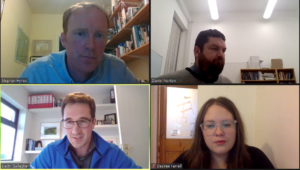In the last decade, Europe’s ocean economy has received increasing policy attention. This can be seen in the publication and ongoing implementation of the EU’s Blue Growth Strategy, the Atlantic Strategy and its Action Plan, the Marine Strategy Framework Directive, etc. These initiatives are all aimed at fostering the sustainable development of the EU’s marine resources. The impact of the current and potential human activities on marine and coastal ecosystems will therefore be a key determinant of the ocean´s health and of the derived benefits through the ecosystem services. With this in mind, the objective of this project is to examine the ‘blue’ growth path for the sustainable development of the major sectors operating in the Atlantic space as envisaged in the Atlantic Action Plan. To achieve these aims, the project participants will build on the expertise gained in the EU INTERREG Atlantic IV project MARNET. The work programme will comprise of four major blocks: (i) Evaluate the evolution of the Atlantic marine sectors using the MARNET framework (ii) Examine the sectoral pressures on the Atlantic marine environment in order to identify best management practices (iii) Assess the vulnerability of coastal marine areas/features to marine sector to the identified sectoral pressures (iv) Using case studies, develop sustainable transition plans to blue growth for a number of key marine sectors and test policies for how well they manage activities to meet MSP and MSFD goals.
Funded by

Project Partners
- NUI Galway
- Queens University Belfast
- Northern & Western Regional Assembly
- Fundacion AZTI
- Institut Français de Recherche pour l’Exploitation de la Mer
- Foro Maritimo Vasco
- Centro Interdisciplinar de Investigação Marinha e Ambiental
- P8 Euskal Herriko Unibertsitatea / Universidad del País Vasco


